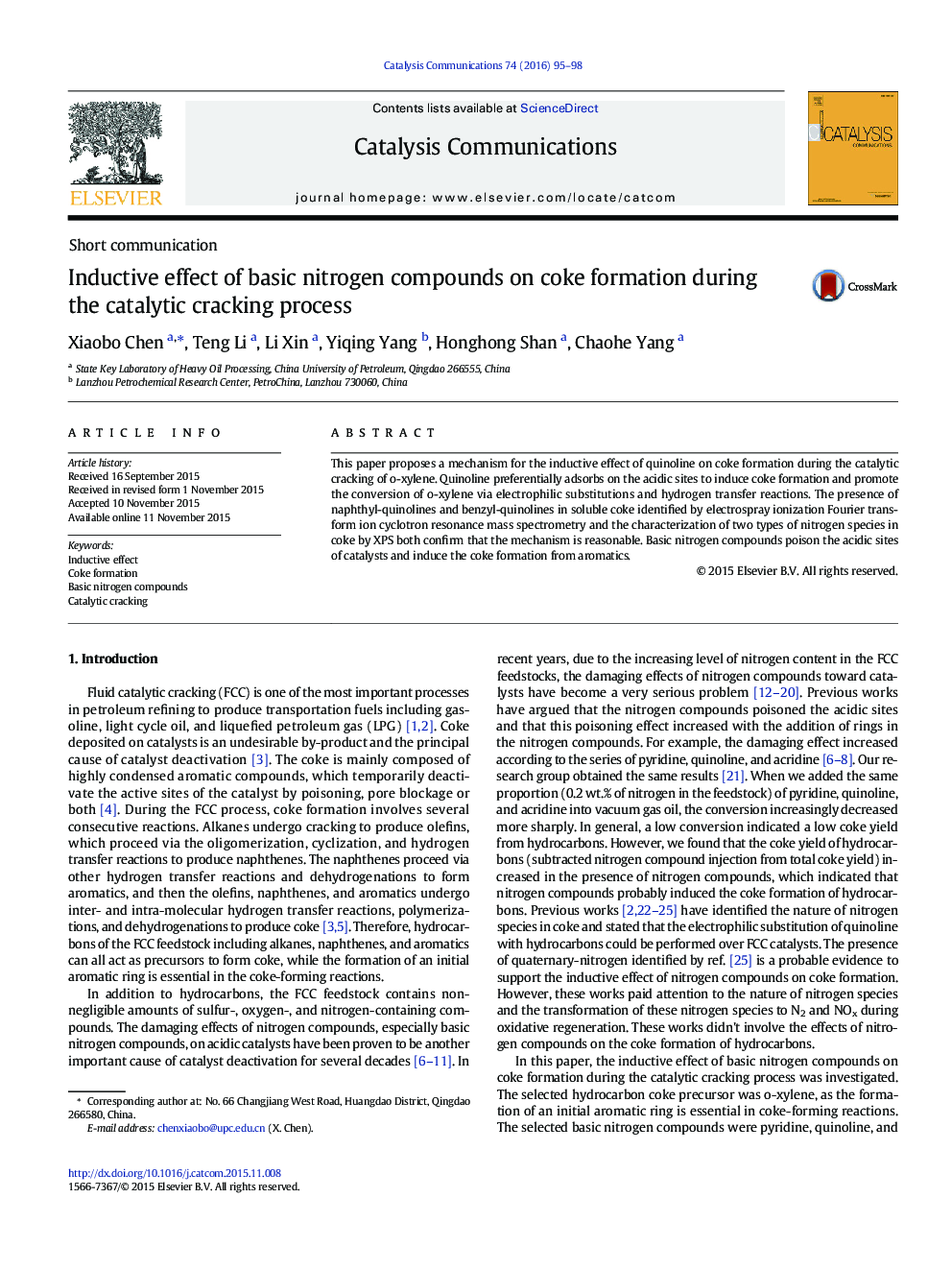| Article ID | Journal | Published Year | Pages | File Type |
|---|---|---|---|---|
| 49264 | Catalysis Communications | 2016 | 4 Pages |
•Basic nitrogen compounds induce the coke formation on catalyst.•Quinoline promotes the catalytic cracking of o-xylene and induces its coke formation.•The nature of nitrogen species in coke deposited on the FCC catalyst was identified.
This paper proposes a mechanism for the inductive effect of quinoline on coke formation during the catalytic cracking of o-xylene. Quinoline preferentially adsorbs on the acidic sites to induce coke formation and promote the conversion of o-xylene via electrophilic substitutions and hydrogen transfer reactions. The presence of naphthyl-quinolines and benzyl-quinolines in soluble coke identified by electrospray ionization Fourier transform ion cyclotron resonance mass spectrometry and the characterization of two types of nitrogen species in coke by XPS both confirm that the mechanism is reasonable. Basic nitrogen compounds poison the acidic sites of catalysts and induce the coke formation from aromatics.
Graphical abstractInductive effect of quinoline on coke formation during the catalytic cracking of o-xylene.Figure optionsDownload full-size imageDownload as PowerPoint slide
